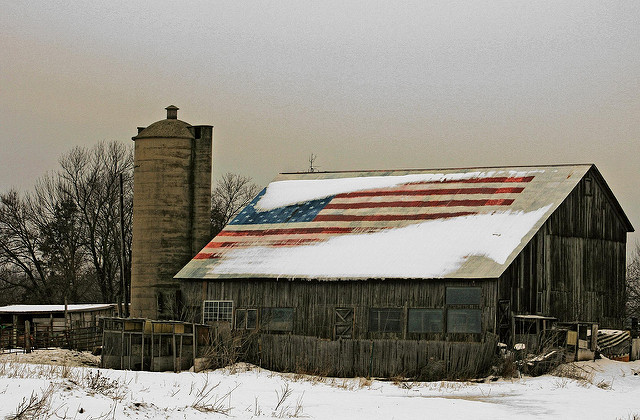
Trump’s rise to the presidency still has many people wondering why large numbers of whites with low to moderate incomes voted for a candidate who supports policies that are likely to have a negative impact on them. In other words, how is a millionaire real estate developer from New York City seen as an average Joe and a champion of white workers? Two prominent sociological explanations involve the racist attitudes of whites’ and feelings of anger and abandoment in economically struggling rural communities.
Racially coded, and racially explicit, language is particularly powerful for tapping into white Americans’ feelings of displacement, loss, and resentment. Sociological research suggests that racialized attacks on “undeserving” immigrants and people of color who benefit from government “handouts” provide a target for anger and a rationale for why white working class communities are struggling economically (while ignoring the privileges that go along with whiteness). Thus, the emotional appeals of racist and xenophobic campaign rhetoric can contribute to lower income people voting against their economic self-interest.
- Paula Ioanide. 2015. The Emotional Politics of Racism: How Feelings Trump Facts in an Era of Colorblindness. Stanford, CA: Stanford University Press.
- Ian Haney-López. 2014. Dog Whistle Politics: How Coded Racial Appeals Have Reinvented Racism and Wrecked the Middle Class. Oxford, UK; New York, NY: Oxford University Press.
- Justin Gest. 2016. The New Minority: White Working Class Politics in an Age of Immigration and Inequality. Oxford, UK; New York, NY: Oxford University Press.
Much of the public commentary about white working class voters has focused on folks in cities and industrial sectors, but another important population to consider is rural residents. People in rural areas are disproportionately white, are struggling economically due to declines in commodity prices, and are confronting rapid demographic changes. Rural citizens, especially white men, perceive their religious and nationalist beliefs as being looked-down upon by liberals, and they draw on a strong rural identity when they describe feeling ignored and abandoned by politicians and elites who devalue their lifestyles. They see the government as creating policies that favor cities and help undeserving minorities and state bureaucrats, all while ignoring rural people. Thus, conservative politicians like Trump have tapped into people’s anger and resentment through emotional appeals to masculinity and male dignity, American nationalism, and Christian morals.
- Arlie Russell Hochschild. 2016. Strangers in Their Own Land Anger and Mourning on the American Right. New York, NY: The New Press.
- Katherine J Cramer. 2016. The Politics of Resentment: Rural Consciousness in Wisconsin and the Rise of Scott Walker. Chicago, IL: The University of Chicago Press.
- U.S. Department of Agriculture Economic Research Service. 2016. Rural America at a Glance. Washington, DC.
- Daniel T. Lichter. 2012. “Immigration and the New Racial Diversity in Rural America.” Rural Sociology 77(1): 3–35.
For more on why working class whites voted from Trump, see here, here, and here.

Comments 2
Matthew W. Hughey — February 11, 2017
I also humbly suggest, The Wrongs of the Right: Race, Language, and the Republican Party in the Age of Obama (NYUP, 2014) by Matthew W. Hughey and Gregory S. Parks
Corey Remle — January 9, 2018
Its been a year now and yet this remains an academic default explanation. While this clearly is an important aspect, it is not the whole explanation. Trump won the White votes compared to Clinton in nearly EVERY category (SES, age groups, religious affiliation, job categories, men, women, intact families, disrupted families, etc.). I haven't seen a breakdown of elites within educational levels or majors such as business majors compared to social scientists or the natural sciences though. My point is this: We cannot shift blame to rural Whites without acknowledging that Whiteness itself and a backlash against Others (minorities, women, immigrants, religious minorities) seem to have played a much bigger role to bring Trump voters to the polls than an urban/rural dichotomy.